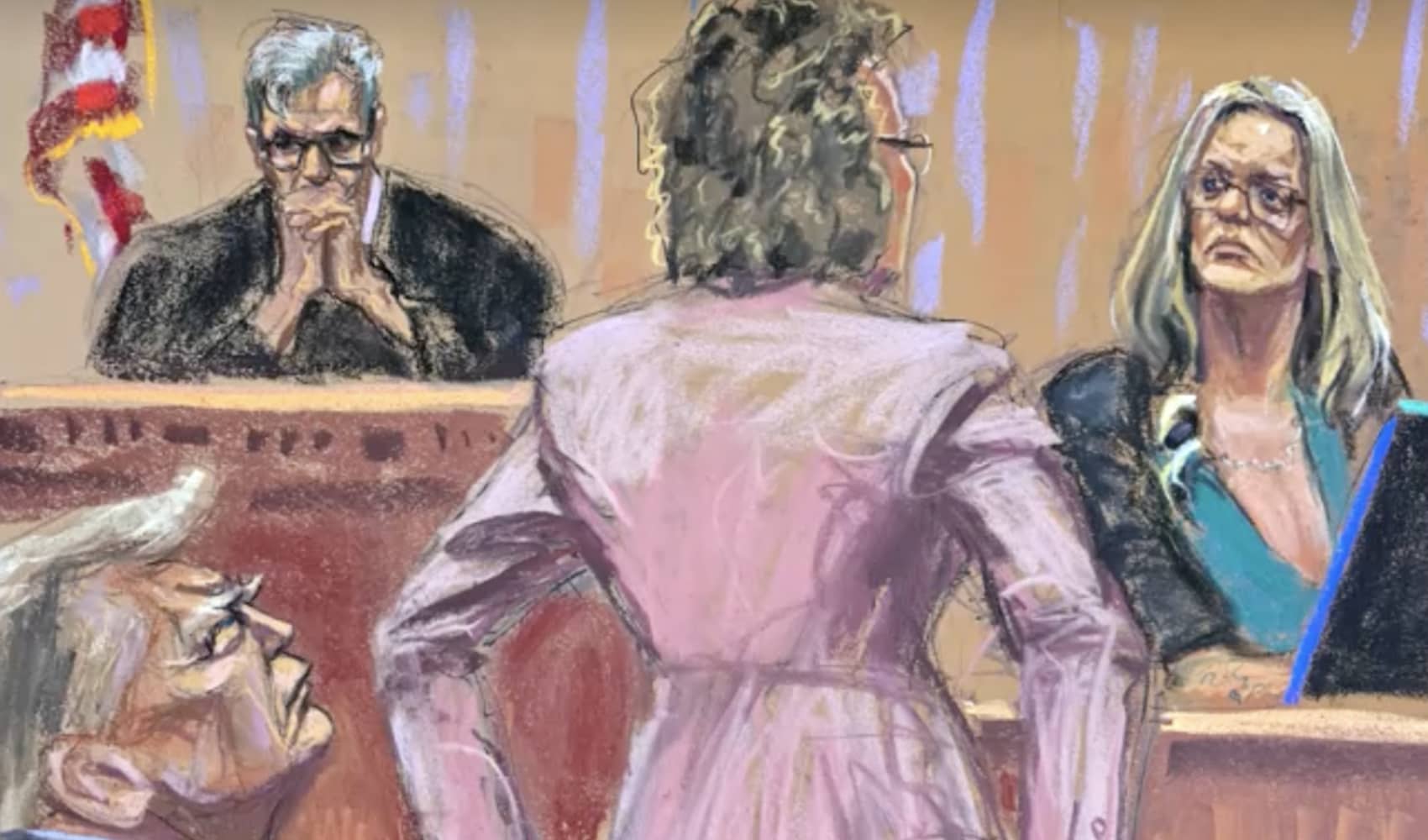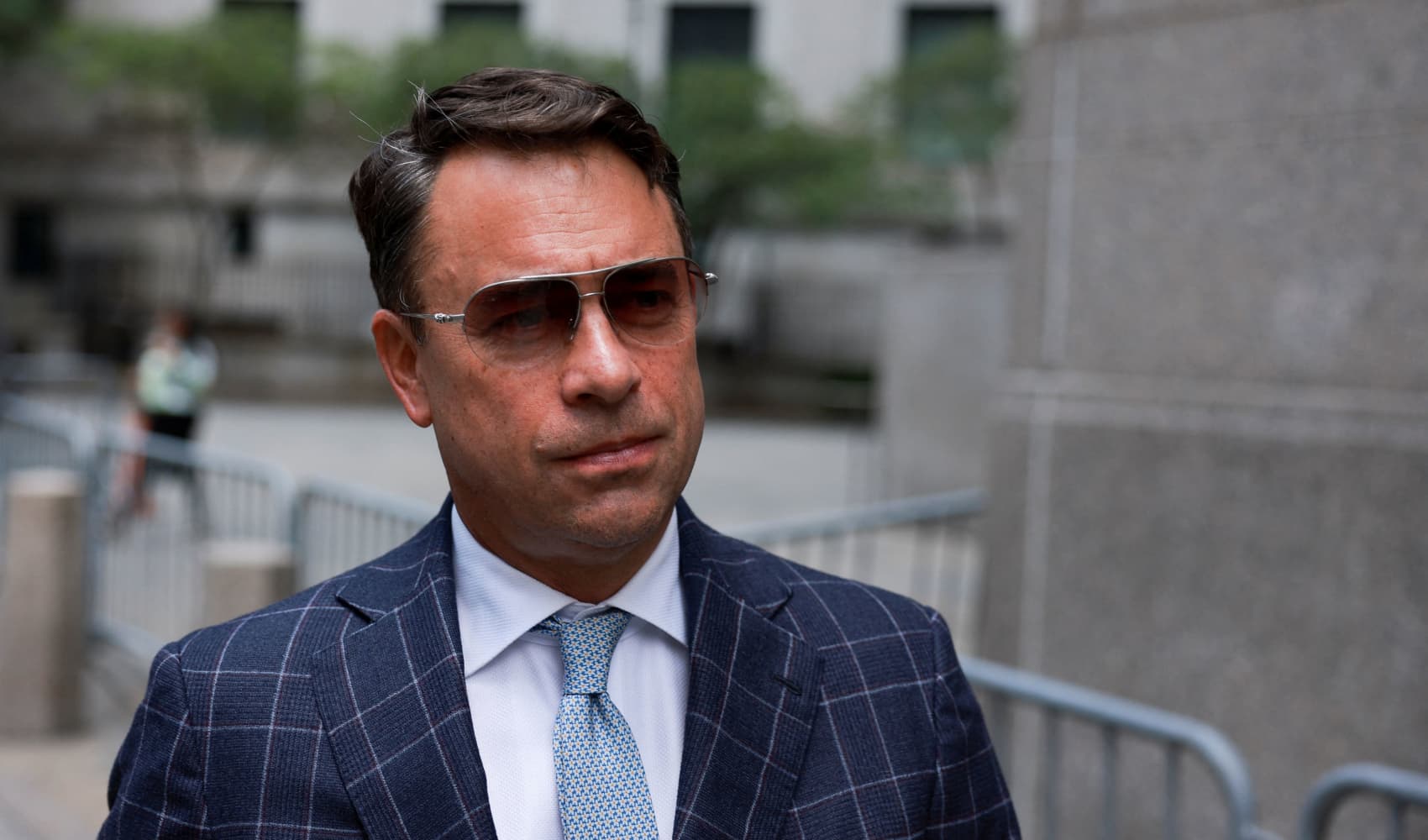
The third week of testimony in Donald Trump’s hush money trial draws to a close Friday after jurors heard the dramatic, if not downright seamy, account of porn actor Stormy Daniels, while prosecutors gear up for their most crucial witness: Michael Cohen, Trump's former attorney.
Daniels' story of an alleged sexual encounter with Trump was a crucial building block for prosecutors, who are seeking to show that the Republican and his allies buried unflattering stories in the waning weeks of the 2016 presidential election in an effort to illegally influence the race.
Trump, who denies the sexual encounter ever happened, walked out of the court in a rage Thursday, angrily telling reporters, “I’m innocent.” His attorneys pushed for a mistrial over the level of tawdry details Daniels went into on the witness stand, but Judge Juan M. Merchan denied the request.
This is all before Trump and jurors are faced with Cohen, Trump’s onetime fixer-turned-foe who arranged the $130,000 payout to Daniels — he says at Trump’s direction. Cohen is expected to take the witness stand next week.
Cohen is likely to be on the stand for several days as defense lawyers seize on the disbarred lawyer’s criminal history to try to convince jurors he can’t be trusted. Cohen served prison time for crimes including tax evasion and campaign-finance violations related to the hush money scheme.
Witnesses in the case have seesawed between bookkeepers and bankers with often dry testimony to Daniels and others with salacious and unflattering stories about Trump and the tabloid world machinations meant to keep them secret. Despite all the drama, in the end, the trial is about money changing hands — business transactions — and whether those payments were made to illegally influence the 2016 election.
Get Tri-state area news delivered to your inbox.> Sign up for NBC New York's News Headlines newsletter.
Back on the witness stand Friday morning was Madeleine Westerhout, a former Trump White House aide. Prosecutors used Westerhout's testimony to detail the process by which Trump got personal mail — including checks to sign — while in the White House. It’s relevant because that’s how he received and signed the checks that reimbursed Cohen for the payment to Daniels, prosecutors say.
Westerhout testified that Trump was “very upset” when The Wall Street Journal published a 2018 story about the hush money deal with Stormy Daniels.
“My understanding was that he knew it would be hurtful to his family,” Westerhout said, though she acknowledged she didn’t recall him saying so specifically. The answer, elicited by Trump lawyer Susan Necheles, goes to the defense’s argument that Daniels was paid to stay silent in order to protect Trump’s family, not his campaign.
Over more than 7½ hours of testimony, Daniels relayed in graphic detail what she says happened after the two met at a celebrity golf outing at Lake Tahoe where sponsors included the adult film studio where she worked. Daniels explained how she felt surprise, fear and discomfort, even as she consented to sex with Trump.
During combative cross-examination, Trump's lawyers sought to paint Daniels as a liar and extortionist who’s trying to take down the former president after drawing money and fame from her claims. Trump attorney Susan Necheles pressed Daniels on why she accepted the payout to keep quiet instead of going public, and the two women traded barbs over what Necheles said were inconsistencies in Daniels’ story over the years.
“You made all this up, right?” Necheles asked Daniels.
“No,” Daniels shot back.
The defense has sought to show that the hush money payments made on his behalf were an effort to protect his reputation and family — not his campaign — by shielding them from embarrassing stories about his personal life.
After Daniels stepped down from the stand Thursday, Trump's attorneys pressed the judge to amend the gag order that prevents him from talking about witnesses in the case so he could publicly respond to what she told jurors. The judge denied that request too.
Trump on Friday also lost a bid to get records from Mark Pomerantz, a former Manhattan prosecutor who authored a book last year detailing tensions with District Attorney Alvin Bragg over whether to seek Trump’s indictment.
Prosecutors in Bragg’s office asked Merchan to reject the subpoena of Pomerantz, and the judge agreed, writing in an order that the defense requests are either overly broad and part of a “fishing expedition” or they seek information that is irrelevant to the case.
Trump is charged with 34 counts of falsifying internal Trump Organization business records. The charges stem from paperwork such as invoices and checks that were deemed legal expenses in company records. Prosecutors say those payments largely were reimbursements to Cohen for Daniels' hush money payment.
This criminal case could be the only one of four against the presumptive Republican presidential nominee to go to trial before voters decide in November whether to send him back to the White House. Trump has pleaded not guilty and casts himself as the victim of a politically tainted justice system working to deny him another term.
Meanwhile, as the threat of jail looms over Trump following repeated gag order violations, his attorneys are fighting the judge's order and seeking a fast decision in an appeals court. If that court refuses to lift the gag order, Trump’s lawyers want permission to take their appeal to the state’s high court.
____
Richer reported from Washington.



